83 percent of Russians think gay people are ‘reprehensible’
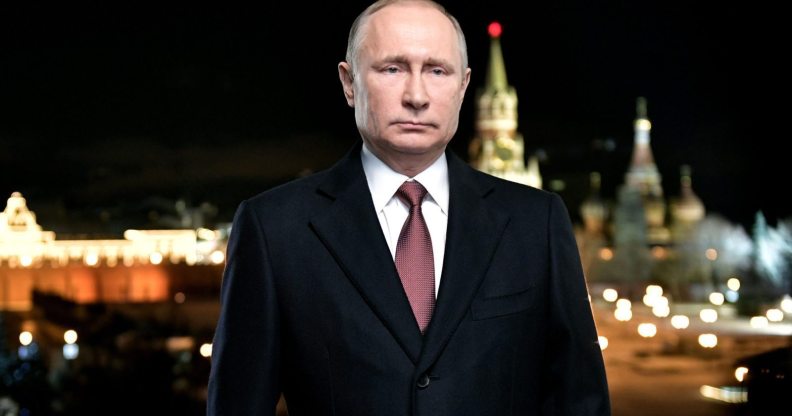
(Getty)
New polling has found that homophobic attitudes have become shockingly prevalent in Russia.
The country has taken a distinct turn against LGBT rights in the past decade, with Vladimir Putin, the Russian Orthodox Church and nationalist vigilantes forming an ‘unholy trinity’ of oppression for gay people.
Putin signed a ‘gay propaganda’ law in 2013 outlawing “propaganda of non-traditional sexual relationships”, which has been used to stifle any public display of homosexuality or display of support for LGBT rights.
The legislation has been condemned by the European Court of Human Rights, for a chilling effect that stifles all dissent on LGBT issues, while leading to a rise in anti-LGBT extremism.
Polling this week, reported in the Moscow Times, found that there has been a chilling effect for opinions about gay people in the country.
Research carried out by independent Russian polling agency the Levada Center found that 83 percent of respondents consider it “always reprehensible” or “almost always reprehensible” for two adults to have gay sex.
This marks a drastic increase from 1998, when just 68 percent found it unacceptable, and 2008, when 76 percent found it unacceptable.
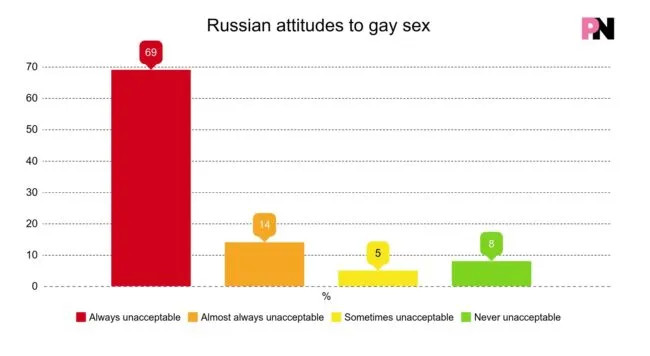
In total, 69 percent said gay sex is “always” unacceptable, 14 percent “almost always” unacceptable, 5 percent “sometimes” unacceptable, and 8 percent never unacceptable.
While previous polling had found that younger people were more likely to be tolerant of same-sex relations, this is no longer the case – with young Russians holding the same level of homophobic beliefs as older Russians.
The poll, which had a sample size of 1,600, was carried out in 48 Russian regions from December 15-20.
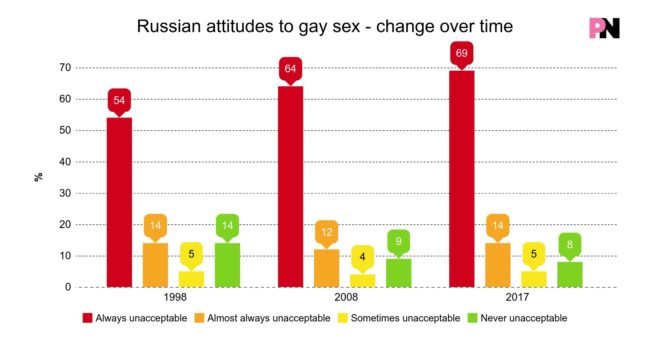
The UK’s Foreign Secretary Boris Johnson recently met with LGBT activists and praised their work on a tense trip to Russia.
The British Foreign Secretary made a visit to Moscow at a time of frosty relations between the two countries.
Mr Johnson took advantage of the trip to meet with local LGBT activists.
The politician also raised the persecution of gay people with his Russian counterpart, Sergei Lavrov, in an awkward exchange during a press conference.
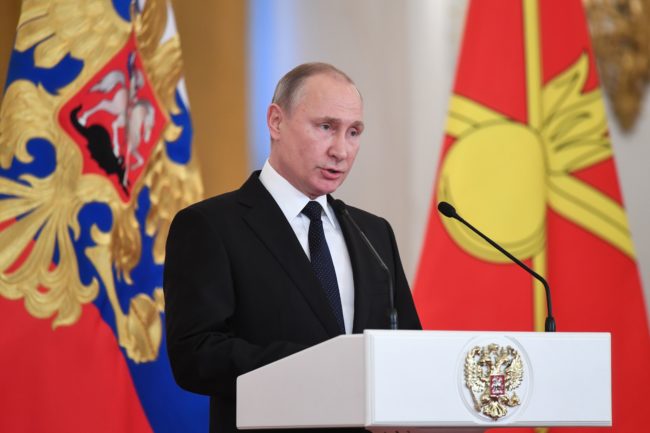
Russian President Vladimir Putin (Photo by KIRILL KUDRYAVTSEV/AFP/Getty Images)
The British official spoke about the importance of civil liberties in a speech at Plekhanov University, before meeting with a group of activists who are fighting for LGBT rights in the country.
He told them: “We celebrate people’s freedom of choice, including whom to love.”
The Foreign Secretary added on Twitter: “Met brave campaigners for LGBT, media freedoms & human rights in Russia. A free, vibrant civil society is a vital component of any democracy.”
The country has a law that outlaws “propaganda of non-traditional sexual relationships”, which has been used to stifle any public display of homosexuality or display of support for LGBT rights.
Human rights monitors also reported that authorities in Chechnya – an autonomous region of Russia – were carrying out a homophobic purge, which the Kremlin failed to intervene to prevent.
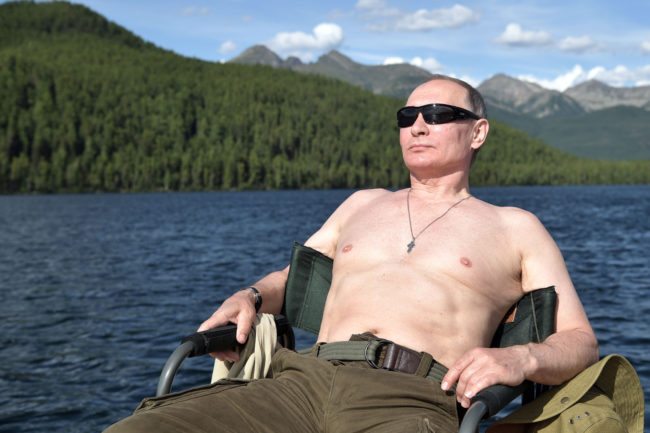
(Photo by ALEXEY NIKOLSKY/AFP/Getty Images)
Speaking alongside Lavrov, Mr Johnson said: “This is a difficult time in the relations between UK and Russia, as Sergei himself has just said.
“We can’t ignore those difficulties, we can’t pretend that they don’t exist, and we don’t share a common perspective on events in Ukraine or the Western Balkans or, as the Prime Minister Theresa May has said, on the Russian activities in cyberspace.
“We speak up for the LGBT community in Chechnya, and elsewhere, as people would expect from us.
“But they would also expect that Britain and Russia, as two P5 [permanent UN Security Council member] countries, should be able, where possible, to coordinate and to work together on the issues that matter to our voters on the issues, that matter to people of the world.
“I believe that having talked many times to Sergei, and particularly after our conversations today, that there are things that we can do together as P5 member across the range of dossiers, as Sergei Lavrov has just said.”

